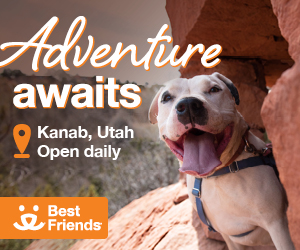We may earn a commission when you click on links across our website. This does not influence our opinions — learn more.
Florida Woman’s Heartbreak After Dog Dies in Sitter’s Care Sparks Outcry Over Rover’s Safety Policies

Eilyn Jimenez’s devastating loss raises fresh questions about how pet-sitting platforms handle trust, accountability, and care standards.
A Florida woman’s tragic experience has reignited debate over the safety and accountability of popular pet-sitting apps like Rover, exposing serious gaps in how these platforms oversee independent sitters.
The Heartbreaking Discovery
When Miami Shores resident Eilyn Jimenez left her three beloved dogs — Baxter, Bentley, and 12-year-old Aria — in the care of a highly rated Rover sitter, she never imagined it would end in heartbreak.
According to Local 10 News, Jimenez returned home to devastating news: the sitter claimed Aria had died peacefully in her sleep and had already been cremated without her permission. But what followed was even more shocking.
Jimenez says inconsistencies quickly emerged — conflicting explanations, missing records, and questions about how and when Aria had actually died.
The cremation company’s paperwork reportedly didn’t match the sitter’s story. In response, Rover confirmed the sitter has been permanently deactivated and stated it is cooperating fully with investigators.
Jimenez declined financial compensation from the company, saying she isn’t seeking money — she wants accountability and reform.
Her ordeal has become a rallying point for pet owners across the country who depend on apps like Rover and Wag! to find trusted care for their animals.
What Pet Owners Should Know Before Booking Online
Rover, Wag!, and similar apps have revolutionized pet care by connecting owners with independent sitters and walkers. But experts warn that convenience shouldn’t replace due diligence.
While these companies perform basic background checks, sitters are classified as independent contractors, not employees — meaning oversight and liability are often limited.
Before handing over your keys and your pet, animal safety advocates recommend several precautions:
- Always arrange a meet-and-greet to observe how your dog interacts with the sitter and their environment.
- Ask direct questions, including who else will be in the home, re there other animals, and details on what their plan is in a medical emergency.
- Look for certifications from Pet Sitters International (PSI), the National Association of Professional Pet Sitters (NAPPS), or Red Cross Pet First Aid.
- Request GPS check-ins, live video updates, or home-monitoring access during your absence.
- Provide written consent for your vet to treat your dog in an emergency, and ensure your sitter knows the clinic’s details and after-hours contacts.
Reviews Aren’t Enough
Online star ratings can create a false sense of security. Animal advocates warn that not all reviews reflect the full picture — many platforms allow sitters to hide or selectively display feedback.
Instead, pet owners are urged to seek independent references and confirm that any sitter is insured or bonded.
Maintaining detailed written care instructions — feeding times, medications, routines — and sharing them with a trusted backup contact can also help safeguard pets in emergencies.
A Call for Reform
Jimenez’s loss has struck a nerve among thousands of dog owners nationwide who rely on gig-economy pet services.
Critics argue that companies like Rover must do more than deactivate bad actors — they should adopt stricter verification, enforce welfare checks, and provide transparent accountability when something goes wrong.
Rover said in a statement that it “stands ready to assist law enforcement,” but Jimenez says the pain of losing Aria has left her determined to see systemic change.
“It’s been very difficult,” she told Local 10. “All we want is accountability.”
Lessons for Pet Owners
As the holiday travel season approaches, pet owners are being urged to take extra precautions when booking care.
Jimenez’s story is a chilling reminder that trust must be earned, not assumed — and that even a top-rated profile can’t guarantee safety.
For many, the takeaway is clear: transparency, communication, and verified credentials aren’t optional — they’re essential to protecting the pets we love.

